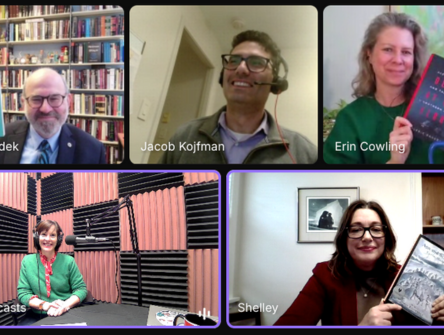The law of remediation agreements: Why it needs to be rewritten
There may have been many good reasons for denying SNC-Lavalin a DPA. But nothing in the law prevents decision-makers from taking jobs into account.

The SNC-Lavalin affair is a story about a lot of things: the rules of parliamentary democracy, the relationship between a prime minister and a government caucus, a grisly collision between high-flying moral rhetoric and the ‘sausage-making’ aspects of politics.
It’s also a story about a law — a new law, still untested. Canada’s law permitting deferred prosecution agreements (DPAs, or “remediation agreements,” to use the wording in the Criminal Code) is less than a year old — so maybe it’s not that strange that not everyone agrees on what it does and doesn’t do.
The scandal itself has been covered extensively by the news media, so we’ll skip over the details here. But one point of contention erupting in that media coverage has to do with the Trudeau government’s core argument in defence of its actions on the file — that it was merely doing what it could to protect the 9,000 jobs that might be at risk if the company is convicted of fraud and corruption charges and, as a result, is banned from federal contracts for up to ten years.
Criminal Code section 715.3 (1), which covers remediation agreements, lists the factors a director of public prosecutions (DPP) must consider before inviting a company facing criminal charges to negotiate a DPA that would allow it to avoid a trial. Chief among those factors are the gravity of the crime (the more serious the offence, the more likely it is the DPP will opt for a trial), the degree to which the company’s senior management was involved in the crime, and the extent of the company’s efforts to punish those responsible.
By law, a DPP must not consider something called “the national economic interest.” The Code doesn’t define the phrase; many have argued that it bars governments from considering the threat of mass layoffs in deciding whether to offer a DPA. A casual reading of the Code section doesn’t exactly refute that interpretation.
But it’s not that simple. “The argument is a red herring,” says John Boscariol, leader of the International Trade and Investment Law Group at McCarthy Tétrault.
“There’s this idea out there that it’s not permitted to consider the effect on employees, people who’ve done nothing wrong. But that’s the reason the DPA law exists in the first place.”
The phrase “national economic interest” was lifted whole from the Organisation for Economic Co-operation and Development’s Anti-Bribery Convention (1997). At the time, the OECD was worried mainly about nations using bribery as a competitive tool. If a nation is free to declare exports to be in the “national economic interest,” it can just as easily conclude that whatever extends and protects those exports is fair game — that bribery is nothing more than the cost of doing business in states with weak governments and notional legal systems.
“You have to look at the intent of the people who drafted the wording in the first place,” says in-house corporate counsel and writer Stephen Lautens, who recently published a piece in the Toronto Star on the DPA law.
“The intention of that section is to prevent countries from giving their domestic companies an international advantage — to prevent Canada from, for example, forgiving a company's bribery to give it a competitive edge over a firm in another jurisdiction that cracks down on bribery.”
Canada didn’t invent DPAs. The United States has been using them since the 1990s; the U.S. Department of Justice and the Securities Exchange Commission have initiated almost 500 of them since 2000. The United Kingdom introduced a DPA regime in 2014, while France created its own in 2017.
DPAs will always be controversial because they sanction corporate wrongdoing outside of a trial setting — a “get out of jail free card,” according to critics. But they also address some of the shortcomings of corporate trials — the difficulty of obtaining convictions, the extreme length and cost of such trials — by forcing scofflaw corporations to admit guilt, pay hefty fines and submit to strict corporate governance rules, reviewed by an independent monitor. DPAs only “defer” prosecution; if the corporation fails to comply with the terms, back to court it goes.
And while it seems obvious, it bears repeating: corporations aren’t people, and they can’t be locked up. Heavy sanctions that undermine a corporation’s viability can easily punish employees, contractors and investors, which can include pension funds. The DPA law was introduced, in part, to protect those people, says Tommy Tremblay of Langlois in Montreal, chair of the Canadian Bar Association’s business law section.
“A ten-year ban on accessing federal contracts would be, for a lot of companies, the corporate equivalent of capital punishment,” he says. “(The DPA law) does not forbid a judge or an attorney general from taking into account the plight of the victims of corruption. In fact, the DPA law was enacted in part to protect them.”
Canada’s DPA law can be compared directly to the U.K. law, since both laws require some degree of judicial review. Tremblay points to a 2017 decision on a DPA for Rolls-Royce PLC, accused of paying bribes to foreign officials to facilitate the sale of aircraft engines. Rolls-Royce’s DPA included penalties totaling roughly $1 billion CDN, independent monitoring and the imposition of anti-bribery and corruption policies.
In his decision approving the DPA, President of the Queen’s Bench Division Sir Brian Leveson pointed directly to the potential effect of a prosecution on Rolls-Royce’s 50,000-plus employees: “I have no difficulty in accepting that … a criminal conviction against Rolls-Royce would have a very substantial impact on the company, which, in turn, would have wider effects for the U.K. defence industry and persons who were not connected to the criminal conduct, including Rolls-Royce employees, and pensioners, and those in its supply chain.” (Leveson also called the “national economic interest” in the Rolls-Royce case “irrelevant” — making a “clear distinction,” says Tremblay, between it and the loss of jobs.)
So while there may have been many good reasons for denying SNC-Lavalin a DPA (the fact that its employees and executives have been embroiled in corruption scandals in the past, for example), nothing in the law prevents decision-makers from taking jobs into account. “It simply makes no sense to say you can’t consider the effect on employees — that’s literally why the law is there,” says Boscariol.
All of which argues for a rewrite, says Boscariol. “The language in the law isn’t really very well put.”


